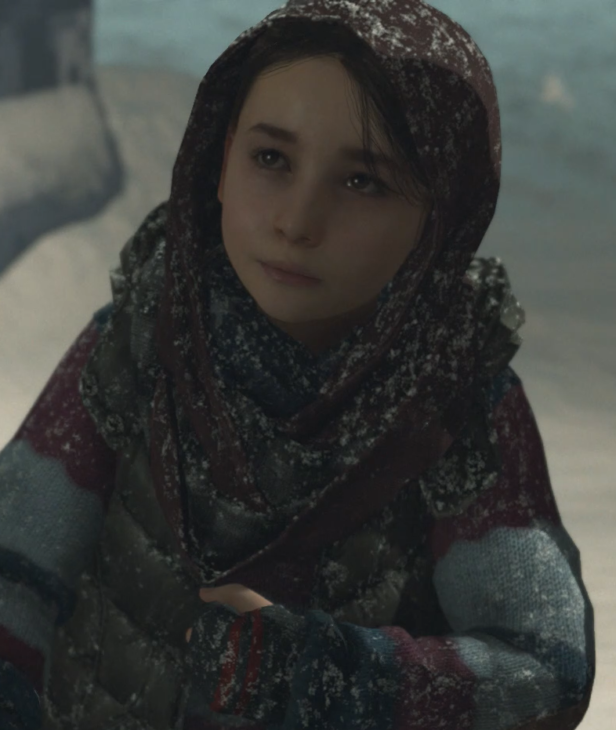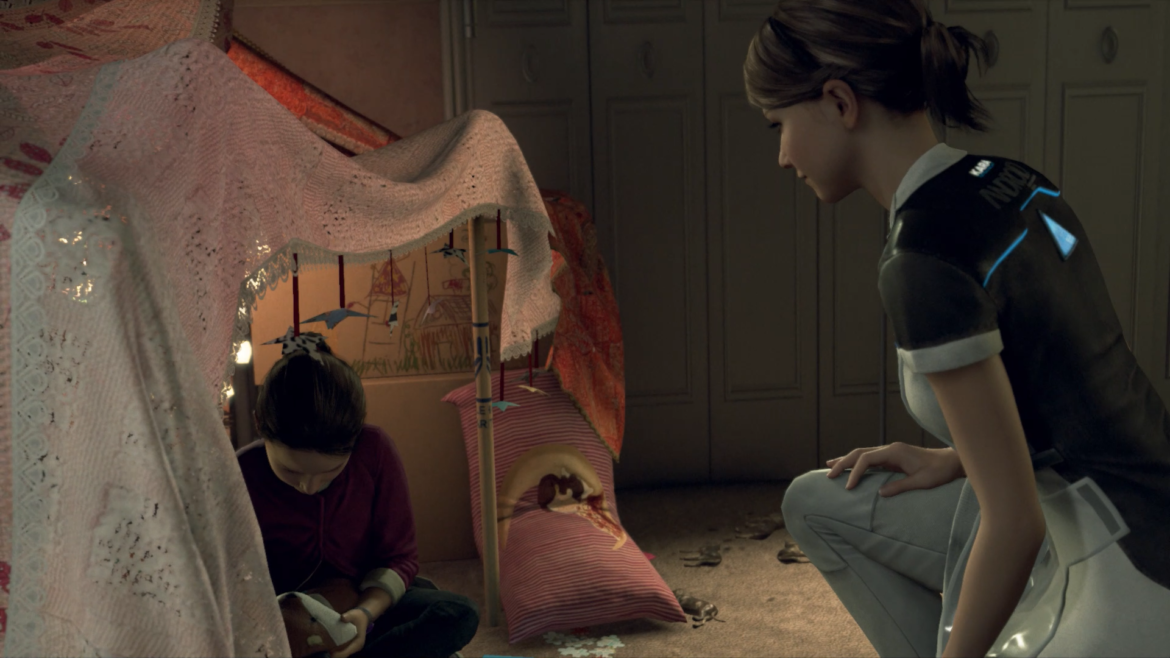
If you read this post on how video game characters influenced my college major, then you’ve already heard that I don’t like when sci-fi robots act too human. I don’t think that it’s very realistic to assume that potential future AI could act indistinguishably from a human.
A computer can execute a billion calculations a second, and process astronomical levels of data in the same time. With all that being said, they currently lack the ability to reason, but instead merely follow the commands given to them.
For example, I can ask my Google Home to sing happy birthday, and she’ll say, “Happy Birthday to whomever’s birthday it is!” during the lyric where the person’s name would usually go. If I tell google to sing happy birthday to Heather, she’ll sing it again with the lyrics unchanged. That, my friends, is called a lack of reasoning. No doubt a software update could fix google such that she inserts said person’s name, but she would do so only because a programmer told her to via code, and not because she realized the situation called for a different outcome.
A truly sentient and reasoning AI would be a terrifying thing, given their ability to absorb, process and act on information. If that AI could also develop empathy, then their interaction with humanity could be quite an interesting one. I believe it would be almost alien as humans and AI strived to understand each other; with humans not able to fathom the sheer processing power of an AI, and an AI unable to comprehend the complex and irrational emotions of a human.
This is the type of interaction that excite me. As of today, it is only up to our imagination how a sentient AI would act. I look forward to seeing this displayed in different sci-fi movies and video games. Unfortunately, I’ve found that the current trend is to cause them to act exactly like humans, as if to emphasize the point that the life of an AI is as valid as a human’s.
I am about to discuss spoilers for the game Detroit: Become Human. Pleas read at your own discretion.
I was excited to play Detroit: Become Human ever since I saw Quantic Dream’s tech demo on Kara. Albeit annoying, I’ve gotten used to the trend of having AI robots act just like humans, so it didn’t bother me too much when this turned out to be the case during Detroit.
If it interests you, you can view my entire playthrough of Detroit: Become Human on my gaming channel: betrix3000. But fair warning before you click on that link – Detroit is the first game I ever recorded myself playing, so I made a couple newbie mistakes. I also started the playthrough as a form of distraction from a deeply emotional experience which had happened the day prior. So I apologize in advance if I’m not as chipper as I should be in that first episode.
I quickly fell in love with Connor and Hank’s partnership, Markus and Carl’s father / son relationship, and Kara’s need to protect Alice which ignited the spark to turn her deviant. At the start of the game, the thing I loved most about these interactions was that they provided an opportunity for humans and androids to learn to understand each other by meeting each other’s needs. It was an excellent premise, and I couldn’t wait to see the relationships develop.

Then, very early on, Markus and Carl are separated, and Markus finds himself leading a group of other deviant androids, one of which he starts to romance. This provides potential for an intriguing interaction as well. How would AI learn to cooperate with each other for a common goal? What would an AI relationship even look like?

Markus’ involvement in Jericho slowly began to lose my interest as the group reminded me more of human fugitives fighting for freedom, rather than AI androids, wanting to be validated as living beings. I wanted to be shown something I hadn’t thought of before. Instead, I got a recycled civil rights story. It just feels lazy to copy and paste human emotions onto the androids in order to force our empathy.
With Markus involved in Jericho, I now had the pairs of Connor and Hank, and Kara and Alice to satisfy my desire to see humans and androids interact. But wait a minute. When’s the last time Alice ate again?
To cut to the climax, it is revealed during the last third of the game that Alice has been an android all along. And with all the hints that Quantic Dream had been dropping from the beginning, the only reason it took me so long to figure out the twist is because, a bit like Kara, I didn’t want Alice to be an android.

In the first seven minutes of this video, you can see me process and vocalize how I finally came to the conclusion that Alice was an android, but what I failed to convey was why that fact bothered me.
I felt that Alice’s unbiased love for Kara and Luther was so innocent and pure. It reminded me of how racism isn’t an instinctual reaction, but is instead learned behavior. I was also curious to learn how an android was going to care for a human child, as they obviously have different needs than androids do. How would Kara feed and keep Alice warm? And what of long term solutions such as adoption? Giving androids equal rights as humans is one thing, but allowing an android to adopt a human child is an entirely different issue which could spark the premise of a completely different game.
But no. Quantic Dream’s desire to create a plot twist ruined the potential for an interestingly complex story, despite it not making any sense that Kara didn’t know about Alice all along. At the snap of a finger, all of Alice’s human issues were solved, and her dilemma became identical to that of Kara’s. You’re cold? Who needs shelter? Simply turn off your cold sensitivity! You have an abusive dad? No need for a custody battle, he was never your dad to begin with!
Prior to the reveal, I loved how Kara and Alice, an android and a supposed human were working together to obtain their own versions of freedom that they so desperately needed. It created a sense of unity between humans and androids. It sent a message: we may be different, but ultimately we want the same thing.
After the reveal, I felt the tone of the game shifted too much into an “us vs them” feel. The reason why Alice loved Kara and Luther so much wasn’t because they were genuinely good people regardless of their makeup, but because she was an android just like they were, going through the same struggle.
In the world of Detroit, I wanted humans and androids to exist in harmony. Looking beyond Kara and Alice, in the prologue of Detroit, we already see that androids are causing a huge homeless issue as they are taking jobs previously given to humans. But now, in one of Detroit’s “good” endings, androids are being considered as a new form of intelligent life, which is great. Meanwhile, thousands (if not hundreds of thousands) of androids have been made sentient, and are now demanding resources such as paying jobs, and proper housing. Excuse me?! We don’t even have enough jobs and houses for the humans who lived here before you all decided to wake up! How does this fix anything? It’s great for the androids, but the evil humans just gotta suck it!
Detroit: Become Human started off with an excellent premise, and there are several scenes which draw out raw, emotional reactions from me. I find that the story, however, falls apart under scrutiny, and I wish it could have given a bit more creative thought to portraying a more realistic AI outbreak.
Those are my thoughts! What did you think about the game? Remember, it’s ok to like a game while still offering it some criticism. Let me know in the comments below!

One thought on “Detroit: Become Human – Thoughts on Alice (and other AI aspects)”
Yet another issue is that video games are generally serious in nature with the major focus on mastering rather than fun. Although, we have an entertainment factor to keep children engaged, every game is usually designed to improve a specific skill set or area, such as instructional math or scientific disciplines. Thanks for your post.